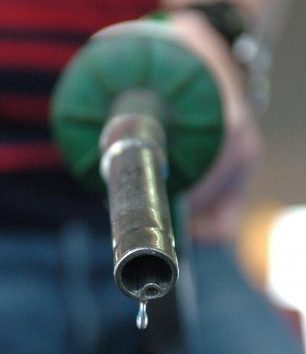
Michael James
Lagos — The Agusto & Co. 2020 Oil & Gas Downstream Report revealed that the growth of the Nigerian Oil and Gas Downstream Industry remains hindered by the lack of substantial investments, import constraints and regulated pump prices.
This revealed in a report titled ‘ A New Dawn For Nigeria’s Oil and Gas Downstream Sector?
The report stated that this is largely attributable to the dominance of the government in the Industry, particularly in relation to the importation of refined petroleum products. Over the years, the Industry has enjoyed stable demand of petroleum products as a result of the subsidies provided by the government. This contributed to the gradual the crippling of government finances.
The Federal Government of Nigeria has taken positive steps to fully deregulate the Industry. The recent plunge in the price of crude oil and petroleum products occasioned by the coronavirus pandemic and slowdown in global oil demand led to a reduction in the pump price cap of PMS to ₦123 per litre. However, a recovery of crude oil prices in June 2020 led to the revised price of ₦143.8 per litre for PMS. The consensus medium-term outlook for the crude oil market is positive, which implies that the price of petrol will be higher than the old regulated pump price in the near future.
The pricing of PMS will continue to be overseen by the Petroleum Products Pricing Regulatory Agency (PPPRA) through a pricing template. The new pricing template takes several factors such as the petroleum product cost and the foreign currency conversion rate into consideration. Agusto & Co. expects the recent adjustment of the official exchange rate from ₦306 to ₦380 per US$ to test the sustainability of the pricing template before the end of 2020.
Notwithstanding, the new pricing regime is expected to emplace a more transparent operating model, stimulating investment growth and encouraging the importation of products by Oil Marketing Companies. Agusto & Co. also believes that the continuous efforts of the government to deepen the utilisation of LPG in Nigeria will continue to bear fruit in the medium to long term.
Substantial local supply of refined petroleum products is imminent with the 650,000bpd Dangote Refinery which is currently under construction. The expansion of the Waltersmith refinery by 25,000 bpd to 30,000 bpd and other smaller modular refineries are also expected to drive increased local refining capacity in the near to medium term. Nevertheless, a significant structural change in the industry is hinged on the approval of the Petroleum Industry Bill (PIGB), which aims to create efficient and effective governing institutions with clear and separate roles. The delay in the approval of the bill has brought about uncertainty for potential investors.
However, given Nigeria’s track record of weak policy implementation and the negative impact of the COVID- 19 pandemic on economic activities, Agusto & Co. does not expect the PIGB to be approved before the end of 2020.
Declining Consumption Levels following the COVID-19 Pandemic

According to Agusto & Co.’s estimates, total consumption of white fuels in Nigeria in 2019 stood at 28.1 billion litres, translating to a total revenue of ₦4.7 trillion. Our research shows that 99% of petroleum products consumed were imported as the country’s refineries operated below the installed capacities, sometimes down for months.
For instance, no white fuels were produced at NNPC refineries for the seven months from June to December 2019 due to ongoing rehabilitation works. The impact of the COVID-19 pandemic on economic activities in Nigeria has resulted in a decline in the consumption of petroleum products. The lockdown restrictions which were implemented by the government as part of an effort to curtail the spread of the coronavirus disease affected the consumption of PMS significantly.
Agusto & Co. expects the consumption of petroleum products particularly PMS and ATK to decline to 27.2 billion litres in 2020 given the severely restricted travel and transportation activities during second and third quarters of the year. This is expected to translate to a decline in revenue to ₦4.3 trillion in 2020.



